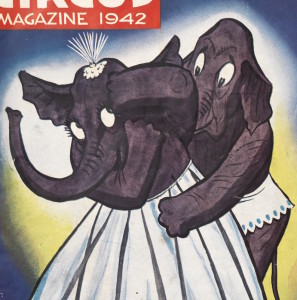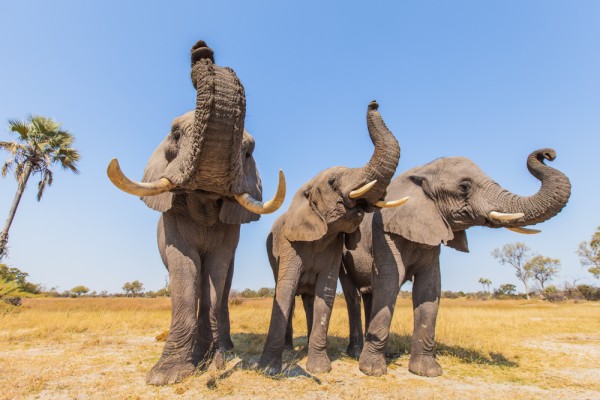
Some heartening news out of the circus world this week as it seems that Ringling Bros. and Barnum & Bailey are going to phase elephants out of their touring shows. I wrote a piece for the New York Daily News last year advocating for an end to the practice that you can still find here. Rather than recapitulate all of those points here, I will just say that what was perhaps the most interesting part of the announcement to me was the forthright acknowledgment by Ringling that people were simply not “comfortable” with performing elephants. It remains to be seen whether the few remaining circuses in the United States that still employ elephants follow suit, but with Ringling giving up the ghost for a variety of legal and financial reasons, I can’t image these other shows will be far behind.
Janet M. Davis struck a rueful tone in her piece published today, citing the the elephant as an American circus icon. Suffice it to say that I am much less sanguine about this history (see this for but one example). I am also much more optimistic about what this might means for the American circus moving forward than most. Despite their outsized image, elephants were historically just one part of the vibrant and diverse form of live entertainment we know as the circus. Indeed, the vast majority of American circuses since at least the Great Depression have not had the herds of elephants that are supposed to be so iconic and necessary. In the New York Times write-up, Richard Pérez-Peña, quoted me as saying that Cirque du Soleil shows that the circus can succeed without exploiting animals, but I should point out that this emerged out a larger discussion about the contemporary vitality of the American circus. At least in New York City, the circus is flourishing and every month seems to bring a new show. Outside of Ringling, they are all succeeding sans elephants. Clearly the RBB&B show has some to decision that they can succeed without them as well. Moreover, having just returned from Australia, which has experienced a decades-long renaissance in the circus arts, I am pretty confident in saying that the prospects for the circus without elephants remains bright. It’s only a real problem if you understand the circus in a ‘traditional’ and narrowly American way. Whatever the future holds and despite my disappointment at the rather extended timetable Ringling outlined, I believe this is good news for the American circus.

